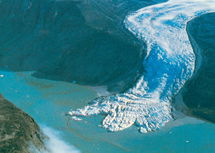Building Climate Change Institutions: The Case of Environment and Security

European Parliament, Brussels, 21 March 2012
On 21 March 2012, the Centre for European Studies (CES) in cooperation with the Institute for Environmental Security organised a conference on "Building Climate Change Institutions: The Case of Environment and Security".
The relative success of the climate change talks in Durban offer the world the opportunity to move beyond the discussion about funding and the modalities of mitigation. Whatever the outcome of the negotiations in 2015, the world now faces several decades of abrupt climate change with intense climate events. Humanity has no choice but to shape the institutions to manage the consequences of climate change on international security. The CES-IES hearing engaged military officers, think tanks and parliamentarians in a creative exercise to gather policy ideas and design today the institutions that will tomorrow manage climate security.
The event was held at the European Parliament with the following specific objectives:
- To bring together parliamentarians and military officers for an interactive discussion on the environmental security challenges posed by climate change and the need for reinforced dialogue between these two sectors.
- To discuss the report from UNEP that a concentration on short term climate drivers such as Black Carbon and Tropospheric Ozone which account for 50% of warming could buy humanity ten years of breathing space, and propose fast action mechanisms that Europe could apply in parallel to UNFCCC negotiations.
- To explore the role of the military and military planning in both reducing its carbon "bootprint" and assisting politicians in developing long term scenarios with regards to the effects of abrupt climate change on the security of states, people and on the economy.
Conference Materials
- Press Release
- Summary Report
- Summary Remarks (Audio)
- Programme
- Participants
- Photos
- Background Documents:
Building Climate Change Institutions: Issues and Questions
Climate Change & International Security Timeline: Recent and Forthcoming Events
The Need for Speed: Reducing Short-Lived Climate Pollutants Can Cut the Rate of Global Warming by Almost Half and Arctic Warming by Two-Thirds for the Next 30 Years or More, (DRAFT: 8 March 2012), Institute for Governance & Sustainable Development
Near-term Climate Protection and Clean Air Benefits: Actions for Controlling Short-Lived Climate Forcers, UNEP, November 2011: This report addresses the mitigation of short-lived climate forcers (SLCFs) and its key role in air pollution reduction, climate protection and sustainable development. SLCFs are substances in the atmosphere that contribute to global warming and have relatively short lifetimes in the atmosphere. The focus is on three SLCFs – black carbon, tropospheric ozone and methane – because reducing them will provide significant benefits through improved air quality and a slowing of near-term climate change.
An EU Security Strategy: An Attractive Narrative, Brigadier-General (Ret.) Jo Coelmont, Egmont – The Royal Institute for International Relations, Brussels, Security Policy Brief, No. 34, March 2012: In today’s ever more complex world, a European Security Strategy (ESS) is needed to preserve our European values and interest, our European way of life – and the Union as such.
Combatting Climate Change: Our Responsibility for Future Generations, Adopted by the EPP Political Bureau on 7 February 2008 in Madrid, European Peoples Party (EPP)